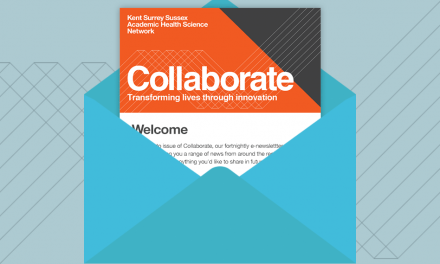KSS AHSN and NIHR Applied Research Collaboration Kent Surrey Sussex (ARC KSS) are among the contributors to a new report investigating investment in eating disorder research in the UK.
The ‘Breaking the Cycle’ report compiled by Beat – the eating disorder charity – on behalf of the All-Party Parliamentary Group (APPG) on Eating Disorders sets out the findings and recommendations from the APPG’s inquiry into research funding, conducted from December 2020 to Spring 2021.
The report highlights that further research is needed to understand what causes eating disorders, how best to treat them and ideally how to prevent them developing.
The rising demand for eating disorder services, in part exacerbated by COVID-19, makes the need for advances in knowledge and innovation through research more urgent than ever.
The report sets out actions for research funders (including government), universities, the NHS, academics and others to help achieve the much-needed advances in knowledge that research can deliver.
Becca Randell, Implementation Manager, contributed to the report on behalf of KSS AHSN and ARC KSS. Her submission included information about the ‘Sussex Partnership Innovation and Research in Eating Disorders (SPIRED) clinic’, and how it acts as a hub that brings together enthusiastic and skilled people and builds “passion, skills and confidence”.
“I am delighted that we have been able to make a valuable contribution to this report by working with Kent, Surrey and Sussex Eating Disorders Clinical Teams,” Becca said.
“We were able to share good practice across KSS with ministers which included local research programmes and in particular, the Sussex Partnership Innovation and Research in Eating Disorders (SPIRED) clinic which has now been highlighted as an example of good practice and a recommendation for other Trusts to follow.
“We hope that this report will help unlock the much-needed funding for eating disorder research across all areas of the UK.”
The report describes how such clinics would also be well placed to:
• Work with local public health teams to integrate eating disorders into other datasets
supporting a population-health approach to commissioning/service planning and research
• Assist with the evaluation of initiatives to embed whole-school/college/university
approaches to mental health
• Support greater use of outcome measures
• Assist with audit and redesign of services
• Share learning around improving staff recruitment and retention.





